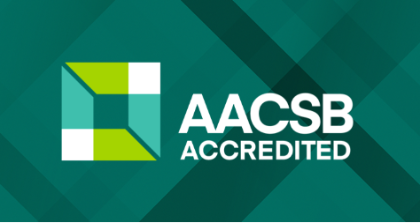

Economics Concentration
What can I do with a business degree focused in economics?
Curious about what makes the economy tick? In Longwood’s Economics concentration, you'll gain the tools to decode market forces, evaluate public policy, and make data-driven decisions that drive real-world impact. Guided by expert faculty who bring both academic insight and practical experience to the classroom, you’ll develop the critical thinking and analytical skills that employers value most. Whether you're interested in finance, government, or global development, economics opens the door to a world of opportunity.
Why choose economics?
- Versatile career paths in business, government, and nonprofits
- A strong foundation for grad school in law, public policy, or business
- In-demand skills like data analysis, critical thinking, and strategic planning
You'll graduate with the credentials and confidence to enter one of the most stable and respected fields in business.
What jobs can I get with an economics concentration?
Economics is one of the most flexible business concentrations—and it shows in the careers our grads pursue. With a strong foundation in economic theory, data interpretation, and policy evaluation, you’ll be prepared to thrive in roles such as:
- Economic Analyst
- Market Research Specialist
- Financial Consultant
- Policy Advisor
- Data Analyst
- Business Intelligence Specialist
- Budget Analyst
- Government Economist
- Banking Professional
- Risk assessment specialist
You’ll find Longwood Economics alumni working in corporations, financial institutions, consulting firms, nonprofits, and government agencies—and many go on to earn graduate degrees in business, public policy, law or economics.
What will I learn in the economics concentration?
You’ll study how economies work—and how people, businesses, and governments make decisions in a complex world. Your courses will build a foundation in economic theory and equip you with tools to analyze data, understand global markets, and evaluate policy decisions.
Core topics include:
- Microeconomics and Macroeconomics analysis
- Econometrics and Statistical Modeling
- Money and Banking
- International Trade and Finance
- Labor and Development Economics
- Environmental Economics
- Game Theory and Strategic Behavior
- Public Sector Economics
- Environmental Economics
- Financial Markets and Institutions
Throughout your coursework, you’ll explore real-world economic challenges through data analysis, research projects, and case studies, preparing you to make strategic decisions in a rapidly changing world. Many students add a minor in Finance, Mathematics, or Statistics to further boost their quantitative and analytical skills.
See all Economics courses in the Loading... major.
Can I minor in economics?
Yes! The Economics minor is a great option for students in any major who want to strengthen their analytical skills and understand the forces shaping our global economy. Whether you're majoring in business, political science, environmental studies, or anything in between, this flexible program helps you think critically about markets, policy, and social issues.
You’ll explore key topics in:
- Microeconomics and Macroeconomics
- Market trends and economic data
- Policy evaluation and economic reasoning
The Economics minor is especially valuable for:
- Business students who want to broaden their decision-making tools
- Students in the humanities or sciences who want to strengthen their ability to work with data and make evidence-based decisions
- Anyone interested in law school, graduate study, or policy work
By learning to interpret economic data and apply it to real-world problems, you’ll gain insights that are useful in just about any field—and increasingly in demand across industries.
See all courses in the Loading....




